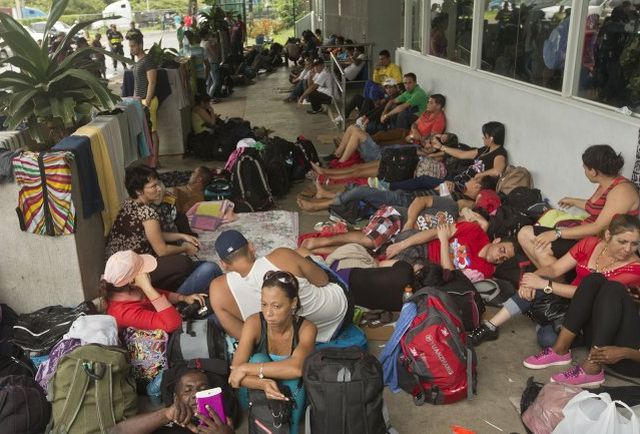Central American countries agreed in a meeting in Guatemala on Monday to airlift some 8 thousand Cubans stranded in Costa Rica to El Salvador starting the first week of January.
A communiqué issued by Costa Rica´s Foreign Ministry, cited by La Nacion newspaper, explains that Central American authorities agreed to open an exceptional, safe and orderly corridor for the 8 thousand Cuban migrants who have been stranded in that country since November in an effort to make it to the United States.
The Cubans will be flown to El Salvador from where they will keep on their trip to Mexico by bus, reads the communiqué. The decision came in during a meeting of diplomatic and migration authorities after other regional meetings that were unsuccessful in finding a solution to the migrants´ situation.
Details about the number of Cubans to go in the first group and other aspects were not yet revealed to guarantee the safety of the migrants, according to Costa Rica’s foreign minister Manuel Gonzalez; however, the press office at the Foreign Minister went on to explain that it will be the Cubans who will have to pay for
air and bus tickets to make the journey to Mexico.
The migrants will keep on their effort to the US border where they are expected to be legally received by US authorities under the dry-feet wet-feet policy and the Cuban Adjustment Act, which encourage this kind of irregular and dangerous migration
to the U.S.
The decision came in a day after Pope Francis called on Central American governments to find a solution to the humanitarian drama experienced by the 8 thousand Cubans in Costa Rica and another one thousand who are still under illegal status in Panama.
In statements at session of Cuban Parliament commissions on Monday, Foreign Minister Bruno Rodriguez said that his country requested an appropriate and fast solution to the case of the thousands of Cubans in Costa Rica.
While the Guatemalan meeting was taking place Monday, Rodriguez said he had no information on the technical gathering of the Central American Integration System (SICA), because Cuba was not represented at the forum since it was called for those nations aimed at finding a solution to the case of the migrants. He noted “I´m convinced that the politicization of US migration policy towards Cuba must change, must stop encouraging illegal, unsafe and
not orderly emigration.”
In an effort to stop the flow into their country, Costa Rican authorities stopped giving entry visas to the Cubans coming from Panama on December 18, and they are now processing deportation of over 40 Cuban migrants that were found in Costa Rican
territory after that decision, according to local media.
 Escambray ENGLISH EDITION
Escambray ENGLISH EDITION






Escambray reserves the right to publish comments.